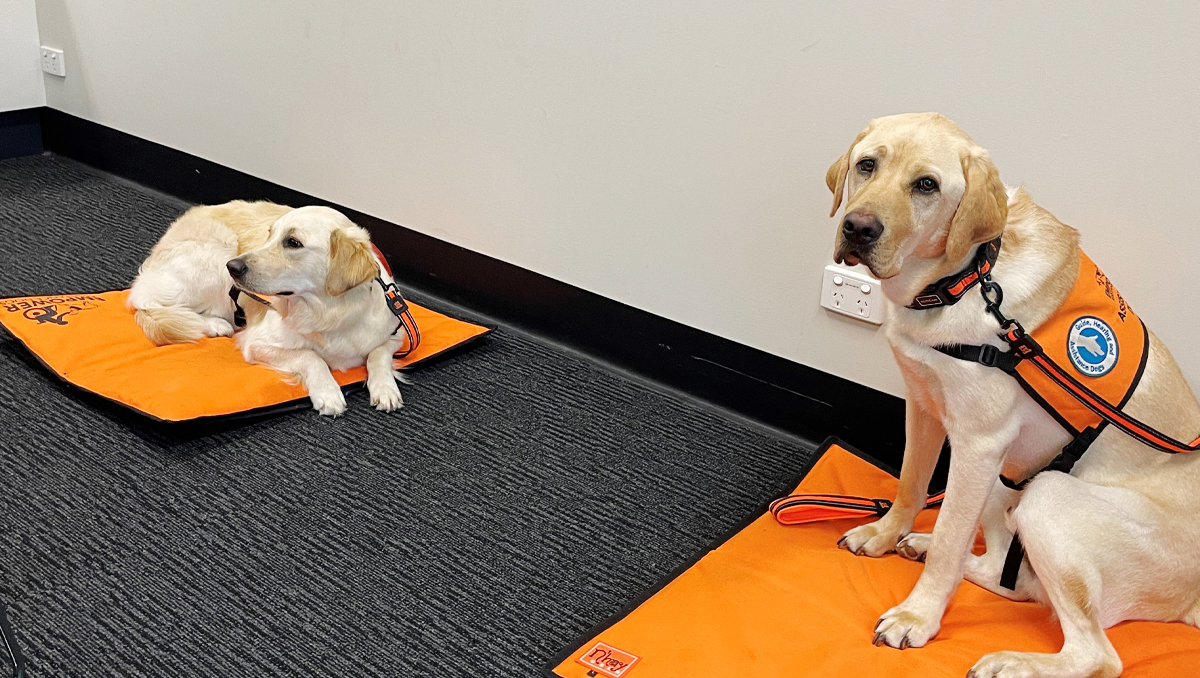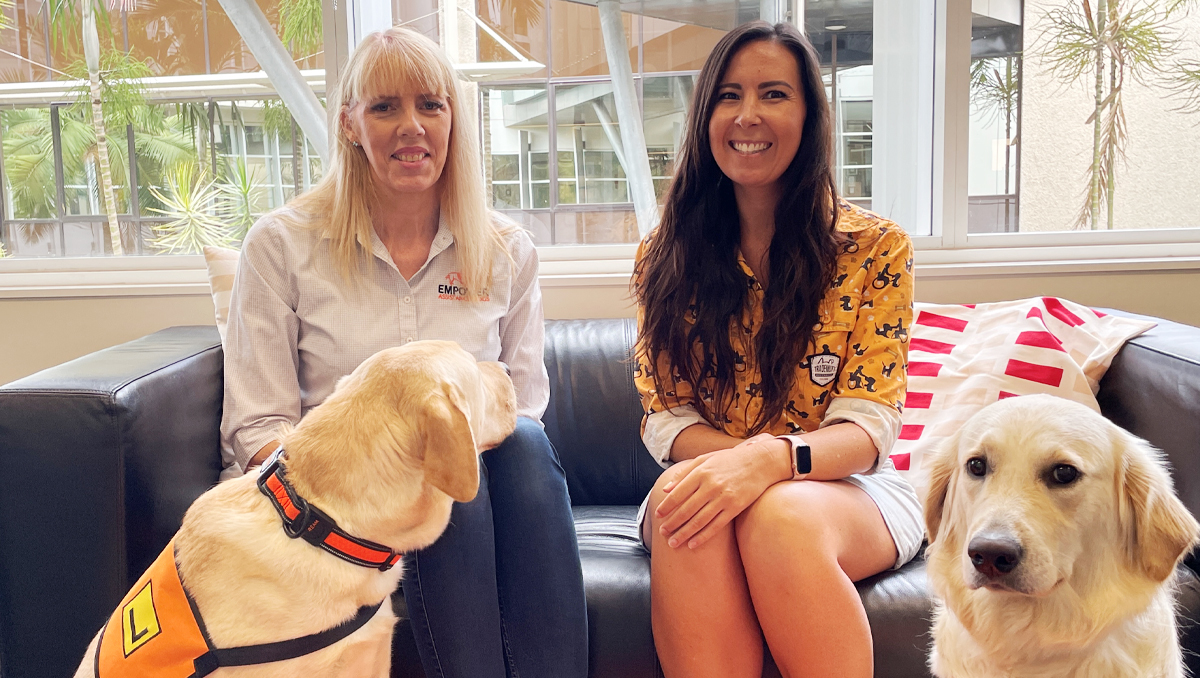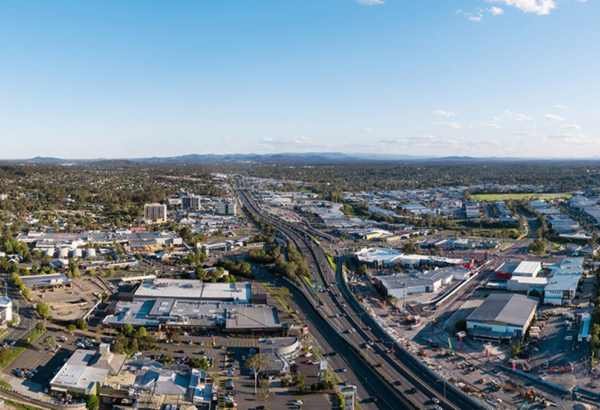Fluffy essential workers support the disabled
Logan’s latest essential worker in training does it all, from helping with motor skill development to supporting people in wheelchairs.
He also enjoys a good tickle behind the ears when he’s off duty at home.
Meet Luna, a Labrador with little floppy ears who is following a formal training schedule to become an assistance dog.
He is one of more than 30 dogs in the Empower Assistance Dogs program, co-founded by trainers Tracey Murray and her husband Craig.
‘In the late 90s, a family friend’s baby was going through more than 100 seizure spikes a day,’ Tracey says.
‘Assistance dogs weren’t as common back then and by the time Craig went overseas to learn about it, the baby had passed unfortunately.
‘That was what really started our journey of trying to help people with disabilities gain greater independence and quality of life.’
The couple advocated for what is now the Guide, Hearing and Assistance Dogs Act, which specifies the calibre of dog needed to adequately support those with challenges.

‘The minute an assistance dog puts on their jacket, they know they’re working and sit up a bit taller,’ marketing manager Bec Loquet says.
‘You can walk into a room of 25 dogs, all on their mats and not making a move. The way they behave and interact reflect Tracey and Craig’s combined experience.
‘The quality of dogs coming out of Empower is next level in my opinion.’
Assistance dogs are assessed on traits like compliance, stress tolerance and their desire to complete task work with their handlers to assist them with their disability which is why they are certified for public access in the community.
Luna, like his peers, began his training as a puppy and lived with volunteer ‘puppy raisers’.
From an early age, aspiring assistance dogs are exposed to a multitude of socialisation scenarios and undergo fortnightly training at Loganlea State High School.
What separates Empower Assistance Dogs from other national organisations is how Tracey and Craig have nurtured the bond between man, dog, and the greater community.
During the puppy raising phase, the team is always on call to provide support to the volunteers raising the dogs.
There’s also a private online forum where volunteers support one another, with many experienced puppy raisers taking on mentorship roles.
After the puppy raising stage, Tracey ensures that volunteers aren’t forgotten about.
‘Most organisations take back the puppies after a year to enrol them in the advanced training course and the puppy raiser may gain limited information about how the dog has progressed and where and when it gets placed.’ Tracey says.
‘We think volunteers are also looking to feel good about what they’re doing, so there needs to be a result that is rewarding. We let the raisers meet the families if they’re happy to and they get to share little intimate things about the dog.’
Volunteers and dogs alike are celebrated during the organisation’s annual gala, where breeding dog mums and therapy dogs get to enjoy a night off duty in glamorously bedazzled collars.
The Empower team often receives feedback on how the dogs have changed their lives.
One of Tracey’s favourite stories is of a 12-year-old who struggled to do many tasks without the aid of her parents.
After she was matched with an assistance dog, she began trying new things like taking a taxi on her own.
With her canine companion, she was able to build enough confidence to attend university and live independently.
Her assistance dog still lives with her to this day and is now happily retired after a decade of hard work.
If you’d like to volunteer or support assistance dogs that are changing the lives of those with needs, check out the following links below:




